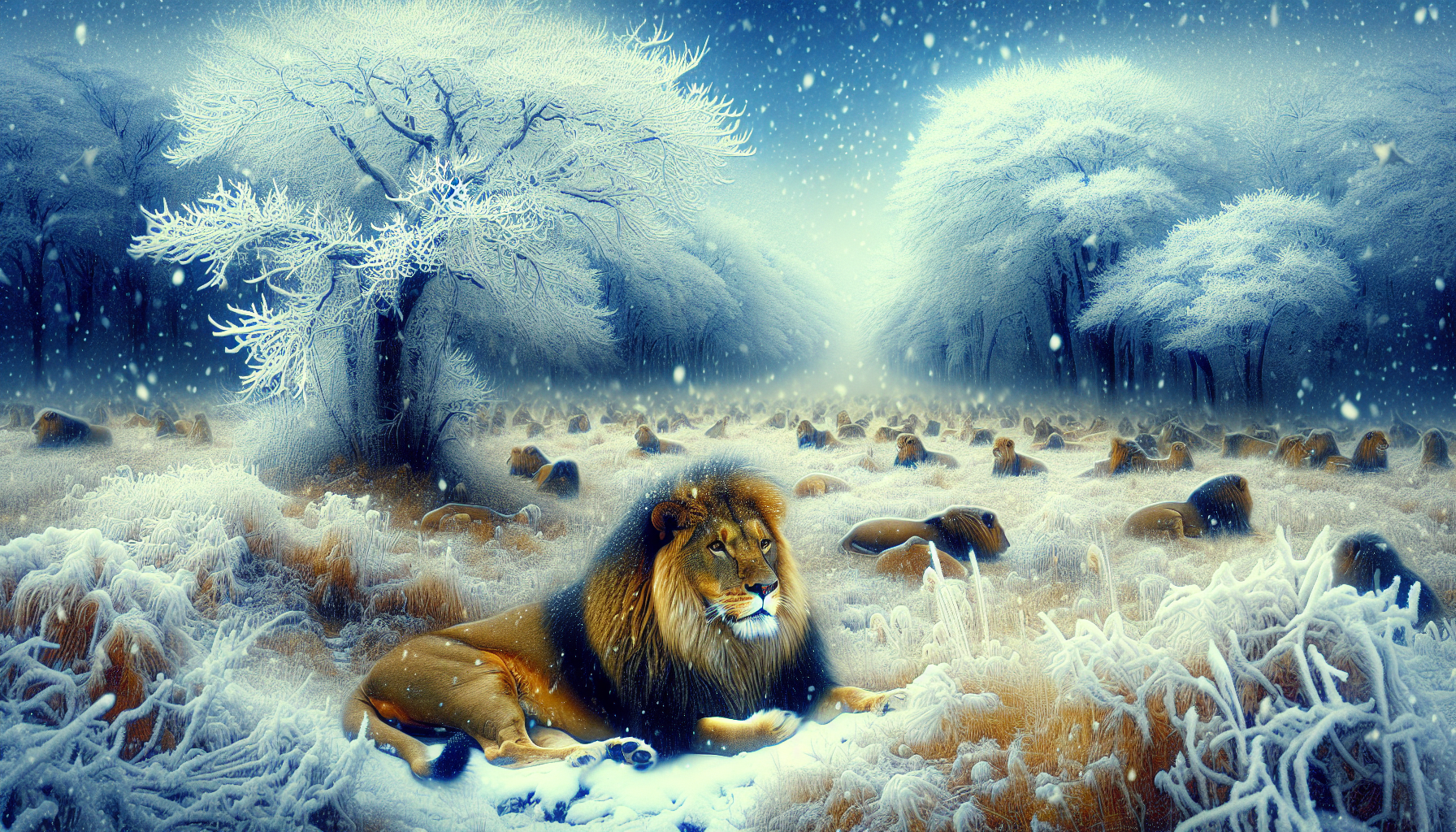Have you ever wondered if lions hibernate in winter? Well, the answer might surprise you. Despite the chilly temperatures and snow-covered landscapes, lions do not go into hibernation when the winter months roll around. While some animals opt for a deep sleep during this time, lions are not one of them. Instead, they adapt to the changing weather conditions in their own unique way, ensuring their survival even in the harshest winter environments. So, let’s uncover the intriguing habits of lions in winter and discover how they manage to thrive when the world around them seems to be in a deep slumber.
Hibernation
Hibernation is a natural state of reduced metabolic activity that certain animals enter during the winter months. It is often associated with cold temperatures and limited food availability. During hibernation, an animal’s body temperature drops significantly, and its heart rate, breathing, and overall metabolic rate decrease. This state allows animals to conserve energy and survive in harsh winter conditions.
Hibernation in animals
Hibernation is a widespread phenomenon observed in many different animal species. It is commonly seen in mammals such as bears, bats, ground squirrels, and some rodents. These animals undergo physiological changes that prepare them for hibernation. They accumulate sufficient fat reserves during the warmer months to sustain them through the winter when food is scarce. Their body temperature drops, and their metabolism slows down, allowing them to survive with minimal energy expenditure.
Characteristics of hibernation
There are several distinct characteristics associated with hibernation. The first is a drop in body temperature, which can be significant, sometimes reaching close to freezing point. This lowered body temperature helps animals conserve energy. Another characteristic is a decreased heart rate, which can slow down to as little as a few beats per minute. Breathing also becomes very slow and shallow. Lastly, animals in hibernation enter a state of torpor, where their physiological processes slow down, almost to the point of suspended animation. These characteristics collectively allow animals to survive in extreme winter conditions.
Lions’ Behavior
Lions are majestic creatures known for their strength, grace, and dominance in the animal kingdom. They are primarily found in the savannahs and grasslands of sub-Saharan Africa, which provide them with the ideal habitat for their survival.

Lions’ natural habitat
Lions are primarily found in the grasslands, savannahs, and open woodlands of Africa. These areas offer a good balance of open space for hunting and sufficient cover for resting and denning. Lions are adaptable and can survive in a range of habitats, from semi-desert regions to dense forests, as long as there is an abundant prey population to sustain them.
Lions’ hunting patterns
Lions are apex predators and the only social cats, living in prides consisting of related females and their young, along with a few resident males. They are opportunistic hunters and rely on cooperative hunting to bring down large prey, such as wildebeest, zebra, and buffalo. They use various hunting techniques, including stalking, ambushing, and working as a team to surround and overpower their prey.
Lions’ social structure
Lions have a unique social structure that revolves around the pride. A pride typically consists of multiple related females, their offspring of various ages, and a few resident males. The females do most of the hunting, collaborating to take down prey, while the males defend the pride’s territory and the cubs from intruders. This social structure ensures the survival and well-being of the pride as a unit.
Winter Adaptations
Winter presents many challenges for animals, including cold temperatures, limited food availability, and harsh weather conditions. To survive these challenges, animals have developed various adaptations to endure the winter months.
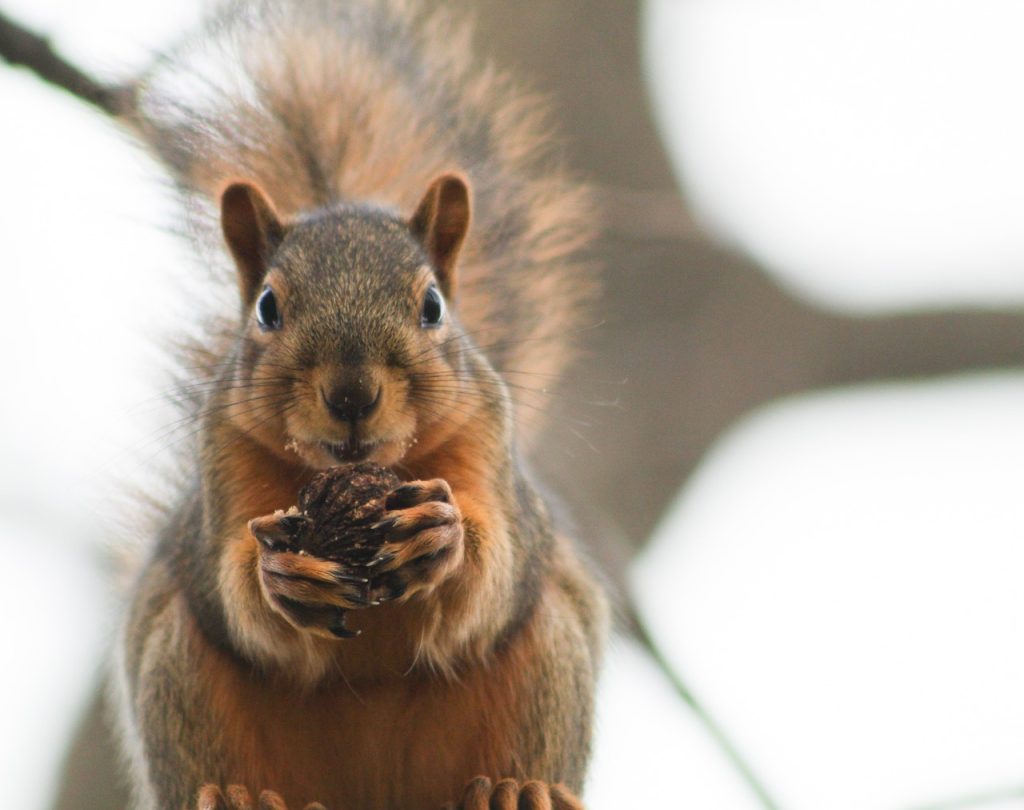
Animal adaptations during winter
Animals have evolved different adaptations to cope with winter conditions. Some grow thicker fur or develop a winter coat to provide insulation and retain body heat. Others change their behavior or migrate to more favorable climates. Some animals, like birds, undergo physiological changes, such as increasing their metabolic rate or altering their diet to include higher energy foods.
Examples of animals that hibernate
While lions do not hibernate, many other animals do. Some examples include bears, who hibernate in dens during the winter months, reducing their body temperature and surviving off their fat reserves. Ground squirrels and certain rodents, like the chipmunk, also hibernate. They accumulate food in their burrows and slow down their metabolic rate to survive the winter.
Behavioral changes in animals
During winter, animals exhibit behavioral changes to adapt to the harsh conditions. These changes include seeking shelter in protected areas, such as caves, burrows, or thick vegetation, to escape the cold and harsh elements. Some animals also change their feeding habits and foraging areas to find alternative food sources during the winter months.
Lions’ Winter Behavior
While lions do not hibernate, they do experience seasonal changes in behavior and physiology during the winter months. These changes are adaptations to cope with the challenges of the colder season and ensure their survival.
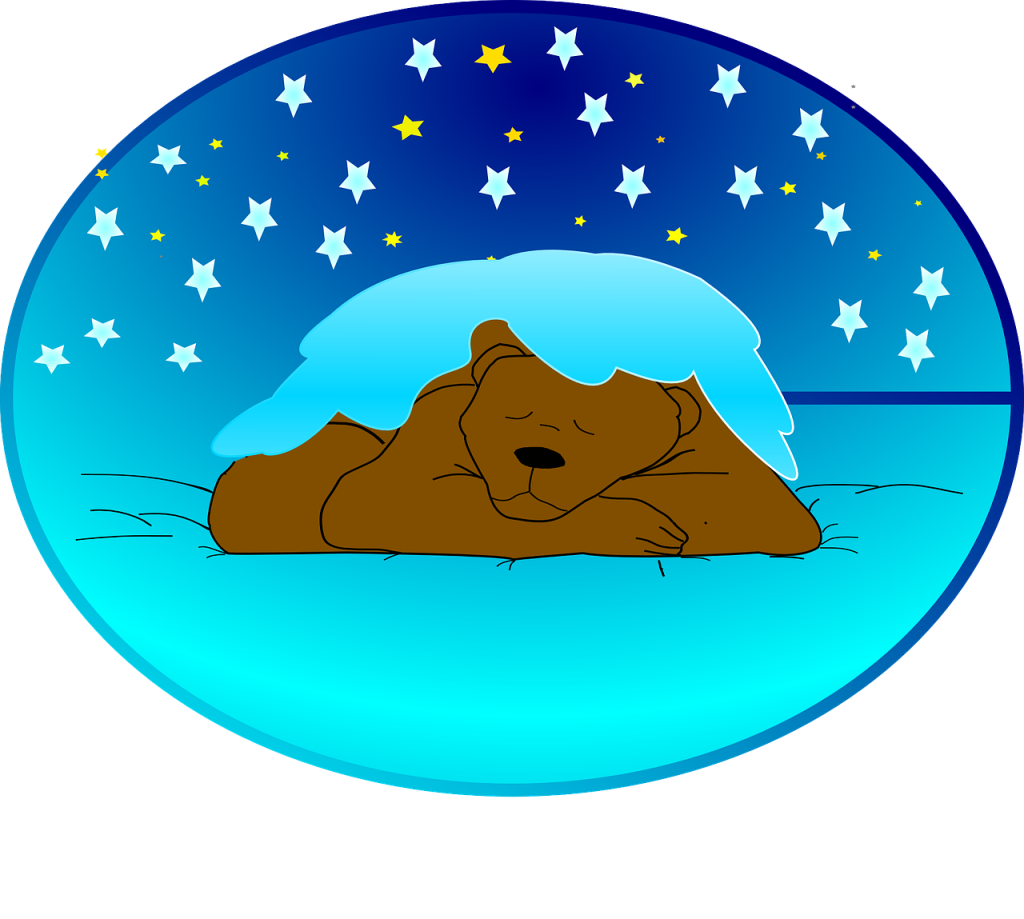
Lions’ seasonal changes
During winter, lions may experience fluctuations in their activity levels. They tend to conserve energy by reducing unnecessary movements and resting for longer durations. This conservation of energy helps them adapt to the lower availability of prey and the need to keep warm during the colder months.
Does coat thickness increase in winter?
Unlike some animals that grow thicker fur or develop a winter coat, lions do not exhibit significant changes in their coat thickness during winter. They retain their characteristic short fur, which provides suitable insulation throughout the year. This adaptation allows them to regulate their body temperature effectively, regardless of the season.
Changes in lions’ diet during winter
The availability of food can impact a lion’s diet during winter. Since prey may become scarcer, lions may need to adjust their hunting strategies or switch to smaller or easier-to-capture prey. However, this can also vary depending on the specific region and the prey species present. Lions are adaptable and can survive on different prey, ensuring their survival even during the leaner winter months.
Lions and Hibernation
Lions do not hibernate. Unlike many other animals, lions have adapted to survive without the need for hibernation. Instead, they rely on their cooperative hunting strategies, social structure, and adaptability to endure colder periods.
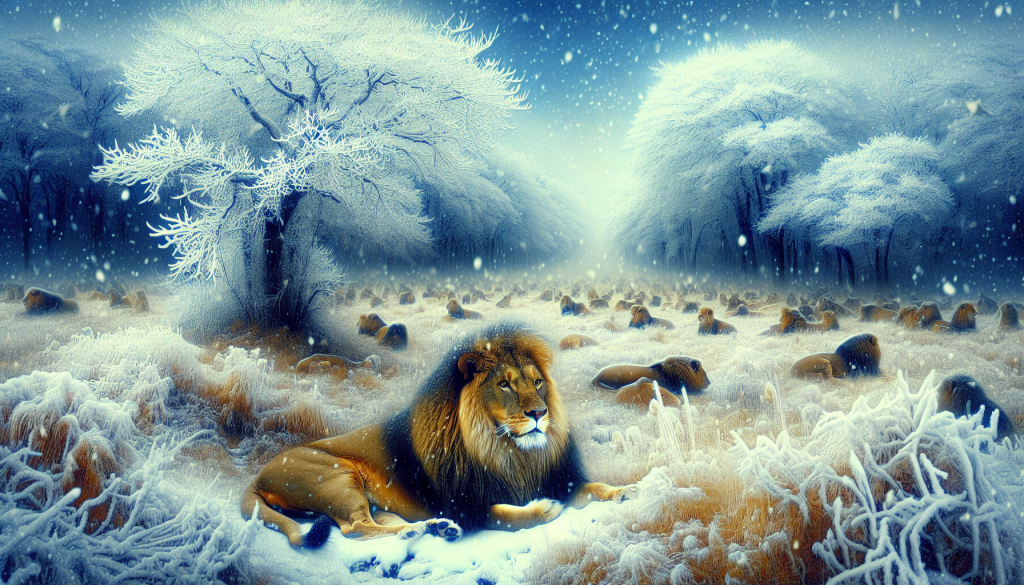
Hibernation versus torpor
While hibernation and torpor may seem similar, they are distinct processes. Hibernation lasts for an extended period and involves a significant reduction in body temperature, heart rate, and metabolism. Torpor, on the other hand, is a shorter-term state of reduced activity and metabolism. Lions do not enter torpor or hibernation but rather adjust their behavior and physiology to cope with seasonal changes.
Similarities and differences with hibernating animals
Although lions do not hibernate, they share some similarities with hibernating animals. Both lions and hibernating animals undergo seasonal changes in behavior and physiology to conserve energy during winter months. The difference lies in the extent of these changes, with hibernating animals undergoing more drastic physiological changes to enter a state of dormancy.
Thermoregulation in Lions
Lions possess several adaptations to regulate their body temperature and cope with lower temperatures during the winter.
Lions’ ability to regulate body temperature
Lions have a well-developed thermoregulatory system that allows them to regulate their body temperature. They can conserve heat by curling up and tucking their extremities close to their body. Additionally, their fur acts as insulation, trapping body heat and providing protection against the cold.
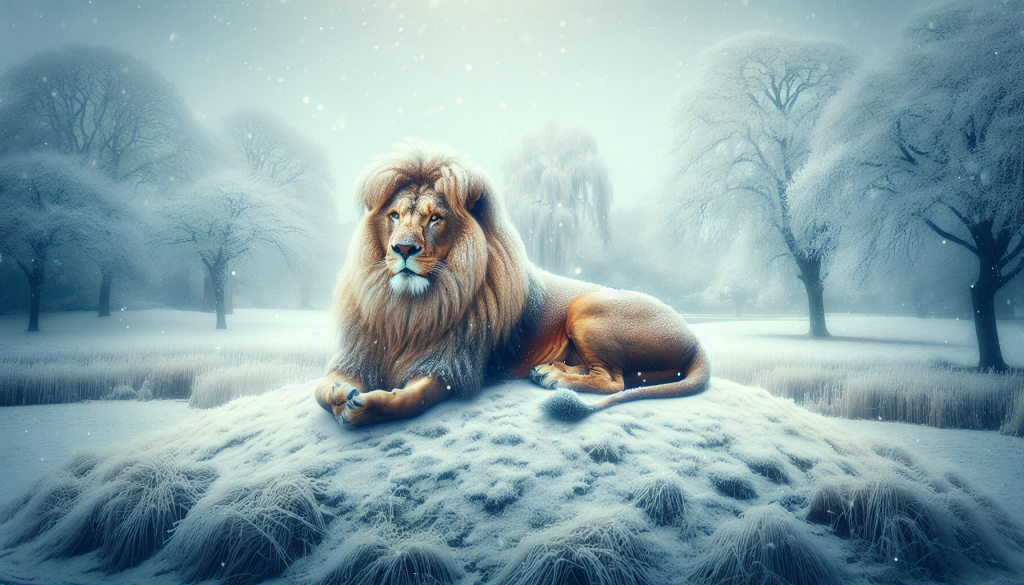
Behavioral adaptations to keep warm
During colder periods, lions often seek shelter in protected areas, such as thick vegetation or rocky outcrops. These locations provide windbreaks and aid in retaining body heat. By reducing exposure to the cold, lions can conserve energy and stay warmer during the winter months.
Lions’ use of shelter during winter
Lions adapt their behavior during winter to utilize available shelter. They may seek out caves, dense brush, or tall grasses to shield themselves from harsh weather conditions. These behaviors help them maintain their body temperature and protect themselves from the elements.
Lions’ Winter Preparations
Lions make certain preparations ahead of winter to ensure their survival in the face of limited resources.
Lions’ increased food intake before winter
Before the onset of winter, lions may increase their food intake to build up fat reserves. This extra food provides energy stores that sustain them during leaner periods when prey availability is reduced. By accumulating fat reserves, lions can survive for longer periods without needing to hunt while resources are scarce.
Building reserves for the colder months
Lions are opportunistic hunters and take advantage of abundant prey when available. They may target larger prey and aim to make successful kills to stockpile reserves for the colder months. Building these food reserves ensures they have a sufficient supply of energy-rich food to sustain themselves during periods of scarcity.
Lions’ relocation based on prey migration
In some regions, lions may follow the migratory patterns of their prey. For example, in certain parts of Africa, wildebeest herds migrate annually in search of grazing grounds. Lions may migrate alongside these herds, ensuring a constant supply of prey throughout the year. Such strategic movements contribute to the lions’ ability to adapt to changing seasonal conditions.
Lions and Climate
Climate has a significant impact on lions’ behavior, habitat, and overall population dynamics.
Impacts of climate on lions’ behavior
Climate affects the availability of prey and water sources, which in turn influences lion behavior. Prolonged droughts or changes in precipitation patterns can lead to reduced prey populations, impacting lions’ hunting success and survival. Extreme weather events, such as floods or heatwaves, can also disrupt lion behavior and habitat conditions.
Variations in lion behavior in different climates
Lions exhibit variations in behavior in response to different climates. In regions with more temperate climates, lions may not face the same extreme challenges as those in more arid or cold climates. Their hunting patterns and habitat utilization may differ based on the availability of prey, water, and suitable shelter in different climatic zones.
Examples of extreme climates and lion adaptation
Lions have shown remarkable adaptability in various extreme climates. For instance, lions in the Namib Desert have adapted to survive in an arid environment where water and prey are scarce. They have developed mechanisms to derive moisture from their prey and can withstand prolonged periods without access to freshwater sources. These adaptations allow them to thrive in an otherwise challenging climate.
Conservation and Management
Conservation efforts play a vital role in protecting lion populations and their habitats, especially in the face of climate change and other challenges.
Effects of climate change on lion population
Climate change poses significant threats to lion populations. The changing climate can disrupt prey populations, alter habitat suitability, and lead to increased incidences of extreme weather events. These factors can result in habitat loss, decreased prey availability, and increased human-wildlife conflicts. Conservation efforts are crucial to mitigate these impacts and ensure the long-term survival of lions.
Conservation efforts to protect lion habitat
Various organizations and initiatives focus on conserving lion habitats and mitigating threats to their populations. These efforts include the establishment and management of protected areas, community-based conservation programs, and anti-poaching measures. Cooperation between governments, local communities, and conservation organizations is essential for the effective protection and management of lion habitats.
Research and monitoring of lion behavior in winter
Studying lion behavior in winter can provide valuable insights into their adaptations and responses to changing climates. Research and monitoring efforts help scientists understand the ecological requirements of lions during the winter months, guide conservation strategies, and inform management practices for their long-term conservation.
Conclusion
In conclusion, while lions do not hibernate like many other animals, they exhibit various behavioral and physiological adaptations to cope with winter conditions. Lions rely on their cooperative hunting strategies, social structure, and ability to adjust their behavior and physiology to ensure their survival during colder periods. Understanding these adaptations and the impacts of climate on lion populations is crucial for conservation efforts and the long-term survival of these magnificent creatures. Future studies on lions’ response to changing climates will undoubtedly contribute further to our understanding of their behavior and adaptation mechanisms.

